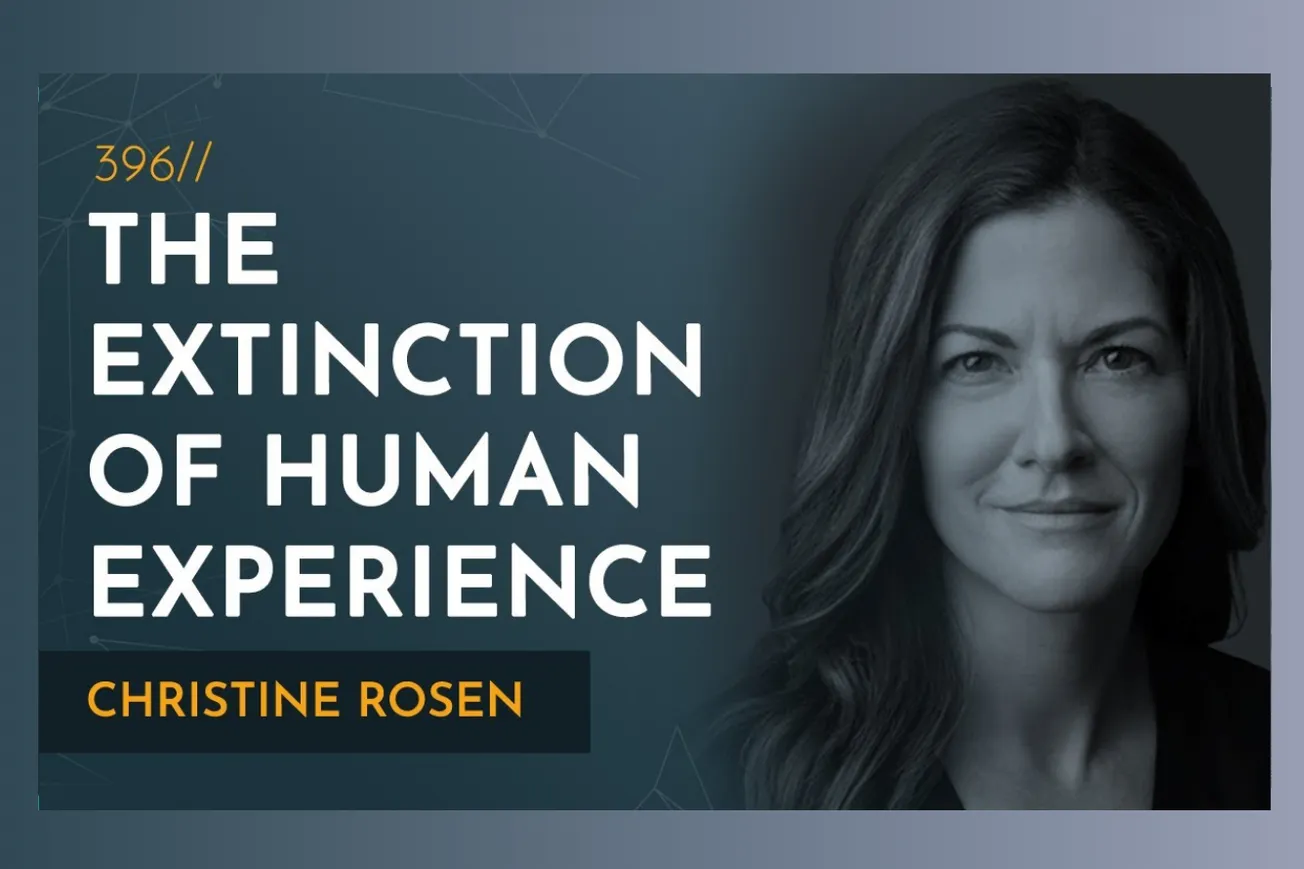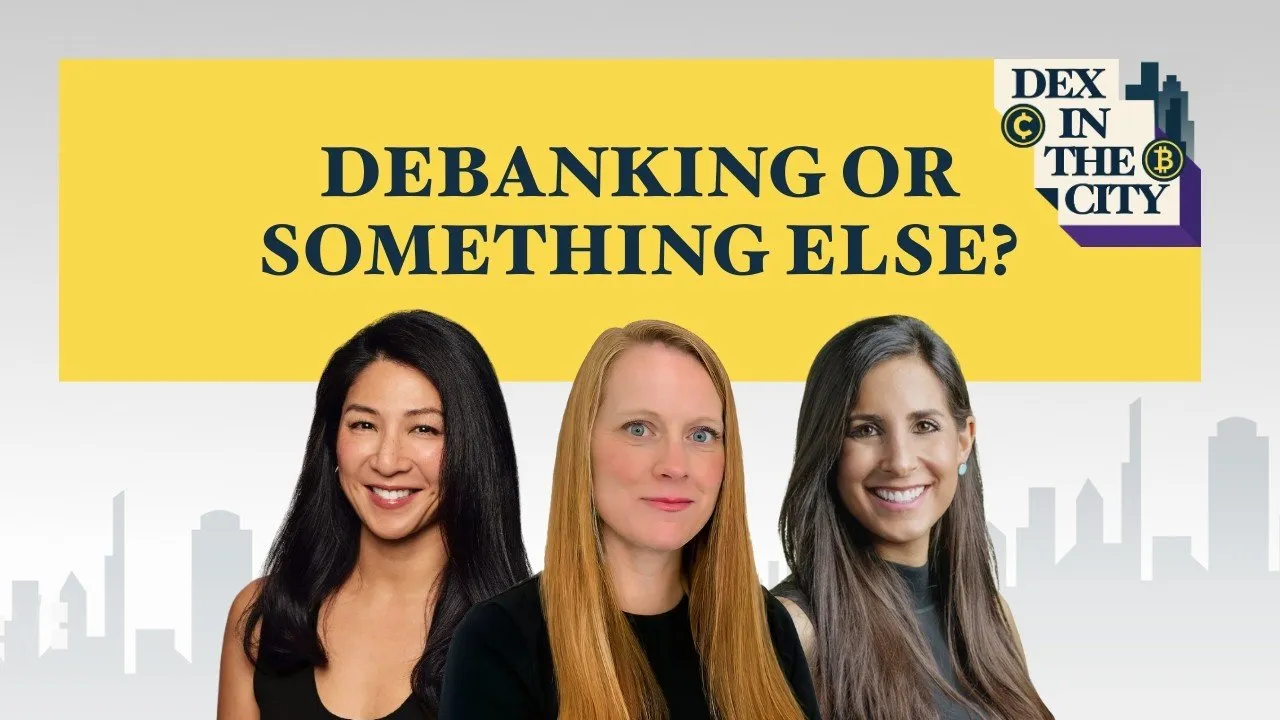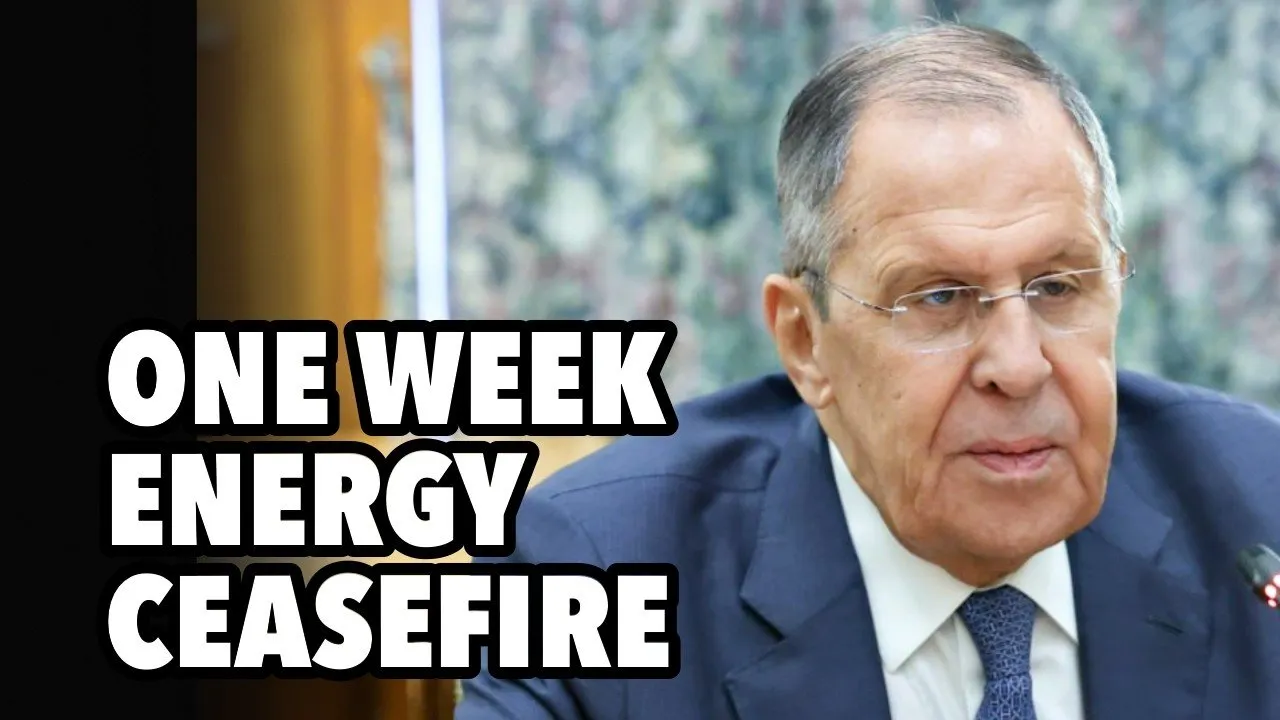Table of Contents
Christine Rosen explores how virtual experiences replace embodied life, threatening democracy, community, and the essence of human flourishing in our technology-dominated age.
Key Takeaways
- Mediated experiences, while emotionally authentic, cannot replace the essential human need for embodied physical presence and shared struggle in building relationships and character
- Virtual environments eliminate the natural constraints and discomforts that historically fostered human virtues like patience, compromise, and genuine empathy for others
- Modern technology promises total control over experience while evolutionary hardwiring requires humans to face unpredictability, challenge, and communal responsibility for psychological health
- Democracy depends on consensus-building through shared reality, which becomes impossible when citizens retreat into personalized algorithmic bubbles that reward outrage over compromise
- The absence of awe and mystery in mediated experiences deprives humans of essential humbling encounters with forces greater than themselves, leading to narcissistic self-importance
- Rising depression correlates with lifestyle shifts toward convenience-driven choices that eliminate the "power process" of struggling toward meaningful goals through sustained effort
- Social media platforms function like casinos, using intermittent rewards and engagement algorithms to capture attention while monetizing human emotional vulnerabilities rather than fostering genuine connection
Timeline Overview
- 00:00–12:30 — Christine Rosen's Background: From fundamentalist education through bioethics to technology criticism, founding The New Atlantis journal and choosing to avoid social media platforms
- 12:30–28:45 — Defining Digital Disembodiment: The "extinction of experience" concept and how mediated interactions replace essential embodied human encounters that shape character and community
- 28:45–44:20 — Human Nature vs. Technological Change: Evolutionary hardwiring for face-to-face interaction conflicts with rapid technological transformation that outpaces cultural adaptation mechanisms
- 44:20–58:15 — The Experience Machine Problem: How changing attitudes toward Robert Nozick's thought experiment reveal growing acceptance of simulated over authentic existence
- 58:15–72:30 — Loss of Awe and Transcendence: The disappearance of humbling encounters with nature and mystery, replaced by technological promises of human control and manufactured wonder
- 72:30–85:45 — Democracy in Crisis: How personalized algorithmic experiences destroy consensus-building capabilities essential for pluralistic democratic governance and long-term thinking
- 85:45–END — Institutional Collapse and Solutions: The breakdown of trusted information sources creates conspiracy theory vacuum while requiring individual and societal responses to preserve human flourishing
The Fundamentalist Foundation: Skepticism Toward Utopian Promises
Christine Rosen's intellectual journey from restrictive fundamentalist education to technology criticism provides crucial insight into why she approaches digital transformation with healthy skepticism rather than uncritical embrace of innovation narratives.
- Growing up in "restrictive fundamentalist Christian Schools K through 12" with "creation science" and "very mannequin ways of looking at the world" created initial framework of absolute moral categories
- Classical education elements including "King James version Bible," "memorization," and "classical literature and poetry" provided traditional analog learning methods that emphasized sustained attention and embodied practice
- Parents encouraged "debate and discuss things at home" despite institutional rigidity, fostering intellectual independence while maintaining respect for tradition and skepticism toward revolutionary change
- Academic transition through "secular undergraduate experience at the University of South Florida" and graduate work allowed critical evaluation of both fundamentalist and progressive worldviews without bitter rejection
- This background produces "healthy skepticism about new things" and "understanding that the newest thing isn't always an improvement" combined with "respect for tradition and some of the old ways"
- Recognition of "how flawed human nature is" makes promises to "transform human nature for the good" automatically suspect, providing intellectual immunity against techno-utopian narratives
The fundamentalist experience, rather than creating narrow-mindedness, equipped Rosen with analytical tools for recognizing when revolutionary promises mask deeper human realities that cannot be eliminated through technological innovation.
The Choice Against Social Media: Observing from Outside the Casino
Rosen's deliberate decision to never create social media accounts provides unique observational perspective on platforms that most technology critics experience from within, revealing their addictive and manipulative design more clearly.
- Personal recognition that "if I were to have those accounts I would either get fired or waste a lot of my time" demonstrates self-awareness about platform addiction potential before widespread recognition
- Professional concern that journalists "putting opinions out there" might undermine their "ability to be objective about the things they reported on" proves prescient given current media landscape
- Research methodology using "friends and family and colleagues" to observe platform behavior rather than direct participation provides ethnographic distance necessary for critical analysis
- Sacrifice of "publicity of my own work" in favor of protecting "habits of mind" shows prioritization of intellectual integrity over career advancement through algorithmic promotion
- Observation that platforms encourage "reactionary and in the moment" thinking "rather than to sit and let ideas simmer for a while" identifies core problem with social media epistemology
- Recognition that platforms function like "casinos" where people "wander into this casino not realizing we're in a casino" until looking around at widespread behavioral dysfunction
This methodological choice parallels how anthropologists study cultures from outside while remaining sufficiently removed to maintain analytical objectivity about practices that participants cannot evaluate clearly.
Mediated vs. Embodied Experience: The Authenticity Question
The central argument about whether virtual experiences can substitute for physical presence involves complex distinctions between emotional authenticity and the broader human formation that occurs through embodied struggle and constraint.
- "Experiences we have online emotional experiences are authentic" - virtual feelings represent "real feelings we have when we communicate with each other online or via text"
- However, "the ease of experiencing those feelings by just tapping a button" creates fundamental problem when it "cannot and should not replace the hardship of having to leave my house"
- Physical presence requires working through conflict: "if you got really angry at me during the course of this conversation you could press a button and I will disappear" versus being "physically sharing the space"
- Virtual control eliminates natural constraints: "we have less control over the other person" in physical encounters, forcing development of patience, compromise, and genuine relationship skills
- Platform designers "are so knowledgeable about how to push our buttons and to elicit emotional and responses like anger fear anxiety as well as happiness and love" that authentic emotions become manipulated
- The result is "false sense of control" over "human relationships" that makes people "mistrust the much more challenging experience of doing that in person"
The distinction is not between authentic and inauthentic emotions, but between the character formation that occurs through sustained physical challenges versus the character deformation that results from choosing easier virtual alternatives.
Evolutionary Hardwiring vs. Technological Acceleration
Human beings evolved for small-scale face-to-face communities over millions of years, but technological change now occurs faster than cultural adaptation mechanisms can process, creating fundamental mismatches between human nature and digital environments.
- "We are hardwired evolutionarily" through "very slow process" where "only in the very very recent past" did humans develop "handwriting or reading or any of these things"
- Traditional communication involved "look at each other we'd see each other's faces we'd see bodily gestures we lived in small communities and were quite violent about not allowing new people in"
- "There are all kinds of things we know without knowing why we know them that are hardwired into our physical bodies through this extens of evolutionary history"
- Cultural differences exist but "the physical reality of interacting with each other remains constant because we're all human beings" - proximity norms vary but embodied presence requirements do not
- "When those change dramatically we flail as humans" because rapid transformation outpaces biological and cultural adaptation capabilities that developed over geological timescales
- Previous eras responded with "we have to figure this out let's figure out how to adapt while still maintaining the virtues of the communities and the human values that we cherish"
- Contemporary difference: "the culture is dominated by a very techno utopian vision of human nature" so "those questions never even get asked anymore"
The speed of change, combined with ideological resistance to acknowledging human nature constraints, prevents the careful cultural adaptation that historically allowed societies to integrate new technologies while preserving essential human values.
The Experience Machine and Changing Values
Robert Nozick's 1974 thought experiment about choosing simulated perfection over authentic reality reveals dramatic shifts in human values, with contemporary people increasingly willing to accept fake experiences over genuine achievement and connection.
- Original thought experiment offered "perfect existence but you know it's not real" - "when he was writing this most people chose reality" because simulated achievements felt unearned
- "The concern was that you're being given this perfect experience without having earned put in any effort to achieve it so your sense of enjoyment would be Hollow"
- Modern iterations show "people are more likely now" to "say yeah that sounds good" when offered pharmaceutical or technological escape from reality's difficulties
- Two factors explain this shift: "people's dissatisfactions with how the real world works are increasing" based on "measurements about trust about loneliness about anxiety about our political culture"
- Simultaneously, "simulations are so captivating and sophisticated and absolutely individualized to the point of preemptively offering you things you didn't even know you wanted"
- Loss of concern about "earning it" eliminates "sense of like something is authentic because I worked at it I set a goal I worked at it I achieved it"
- This abandons "allegiance not just to myself and my own pleasure but to the world I live in the community of people" where "I have rights but I also have responsibilities"
The shift represents fundamental change from achievement-oriented culture that valued struggle and community obligation toward consumption-oriented individualism that prioritizes personal pleasure over authentic accomplishment.
The Disappearance of Awe and the Sacred
Modern technological environments systematically eliminate encounters with mystery, transcendence, and forces greater than human control, depriving people of essential humbling experiences that historically fostered wisdom and proper perspective on human limitations.
- "Awe is something that we I think used to be a more regular experience and nature was often the point at which people could experience awe"
- Mountain and river encounters provided "sense of Awesomeness and that sense of actually groundedness but also how small and meaningless I am in the larger scheme of the universe which is a humbling feeling"
- Technology delivers opposite message: "you can control everything now and if you don't like living in the real world with all its difficulties you don't have to"
- "Lack of a sense of wonder and awe coincides obviously with greater secularization" as "the largest growing group in the country right now" are people with "no religious affiliation at all"
- "More secular society will search Elsewhere for meaning and purpose and a sense of wonder and awe because it's hardwired in human beings to seek that"
- Apple advertising exemplifies technological awe replacement: "isn't this amazing what you can do with this" evolving into "isn't it amazing what these Technologies do it's the technology we're supposed to be in awe of"
- Manufactured technological wonder cannot replicate natural transcendence: Las Vegas sphere represents "simul lockr of other things" that is "qualitatively different thing than going on a hike in a mountain and watching the sunrise"
The substitution of technological for natural wonder eliminates the humbling encounters with mystery and limitation that historically prevented human hubris while fostering genuine wisdom about our place in larger reality.
Democracy's Dependence on Shared Reality
Liberal democratic governance requires consensus-building among citizens who share enough common understanding to engage in productive compromise, but algorithmic personalization destroys this foundation by fragmenting society into incompatible information environments.
- "It doesn't and it can't" - democracy cannot function when "we do not have a shared reality anymore" due to excessive time in "mediated environments"
- Platforms "reward engagement so what most engages people fear anger anxiety not happiness" because these emotions trigger evolutionary survival responses that "keep you alive"
- "Intermittent rewards we don't know when that text message is going to come in" create addiction patterns similar to "casino" design where "there are no windows there are no clocks"
- Political consequences: "even our politicians are preaching to their followers not their constituents they use it as a platform rather than being shaped by the institution of Congress"
- Long-term thinking becomes impossible when "habits of Mind in the citizenry are in the opposite direction which is on demand instant gratification"
- Citizens cannot process complex governance: "Social Security is going to go bankrupt we have to fix this now but you won't see any results maybe your kids or grandkids will"
- Algorithmic logic opposes democratic needs: "what's good for ad dollars and engagement" isn't "conversations about how to fix problems it's invectives and assaults"
Democratic institutions require patient citizens capable of delayed gratification and compromise, but social media platforms systematically cultivate impatience, outrage, and zero-sum thinking that makes democratic governance impossible.
The Collapse of Institutional Trust and Information Authority
When traditional institutions lose credibility through actual deception while new information systems prioritize engagement over accuracy, societies enter dangerous periods where conspiracy theories fill the vacuum left by collapsed consensus reality.
- "We are rapidly becoming a low trust Society" where "people do not only mistrust their government they mistrust the media" and show "increasingly higher rates of mistrust" of military and other institutions
- Government lies during "pandemic where they were told one thing by public health officials and then the next week that was flip-flo to something else with no accountability"
- Information speed mismatch: "reassurance now comes at a pace that's very 20th century" while "information and the images in particular spread at the 21st century pace"
- Recent examples like Chinese spy balloons: "for days people were pointing to them going what's that that looks bad" while "government said n it's no no big deal"
- "Legacy institutions think the vast majority of people are too dumb to understand what's going on and they act on that sensibility all the time"
- Citizens respond reasonably: "the rest of us are going we just want to know what's happening it's not because we're ignorant it's because we're asking for answers and we don't get them"
- "I have a lot of sympathy these days for conspiracy theorists they're not crazy to come up with theories you know why because the people in charge aren't telling us what's happening"
The breakdown creates feedback loop where institutional secrecy breeds justified suspicion, which platforms then monetize through conspiracy content, further eroding the shared information environment democracy requires.
Common Questions
Q: What is the "extinction of experience" and why does it matter?
A: The replacement of direct embodied encounters with mediated digital alternatives eliminates essential human formation that occurs through physical struggle and constraint.
Q: Are online emotions less authentic than offline emotions?
A: Online emotions are genuine but the ease of control and escape prevents the character development that comes from working through difficult in-person relationships.
Q: How does technology affect democratic governance?
A: Algorithmic personalization destroys shared reality while rewarding outrage over compromise, making consensus-building impossible in pluralistic societies.
Q: Why do fewer people choose reality over simulation in modern versions of the experience machine?
A: Growing dissatisfaction with real-world problems combined with sophisticated virtual alternatives makes simulated perfection more appealing than earned authentic achievement.
Q: What role does awe play in human development?
A: Encounters with mystery and forces greater than human control provide essential humbling experiences that prevent narcissism while fostering wisdom about human limitations.
Christine Rosen's analysis reveals how digital disembodiment threatens fundamental aspects of human flourishing that evolved over millions of years but can be destroyed within decades. The shift from embodied community life toward algorithmic individualization undermines both personal character development and the social cohesion necessary for democratic governance.
While technological tools offer genuine benefits, their current design prioritizes engagement and control over human formation and communal flourishing. Recovery requires both individual choices to prioritize embodied experiences and societal decisions to regulate platforms as public utilities rather than private casinos. The stakes involve not just personal happiness but the survival of democratic institutions that depend on citizens capable of patience, compromise, and shared reality. Without deliberate resistance to technological convenience and manufactured wonder, human societies risk losing the essential capacities for wisdom, virtue, and collective self-governance that define our species.
Practical Implications
- Individuals should deliberately choose embodied experiences over mediated alternatives when possible, even when virtual options are more convenient or immediately satisfying
- Educational institutions must preserve analog learning methods that develop sustained attention and physical engagement rather than screen-mediated shortcuts
- Democratic societies require regulations treating social media platforms as public utilities with transparency obligations rather than private entertainment companies optimizing for engagement
- Communities need physical gathering spaces and regular face-to-face interactions that cannot be replicated through digital platforms or virtual reality environments
- Information institutions must prioritize truth-telling over protective deception while developing rapid response capabilities that match social media information speed
- Families should model digital restraint and create technology-free zones that prioritize embodied presence and shared struggle over convenience and individual entertainment





